Premium Only Content
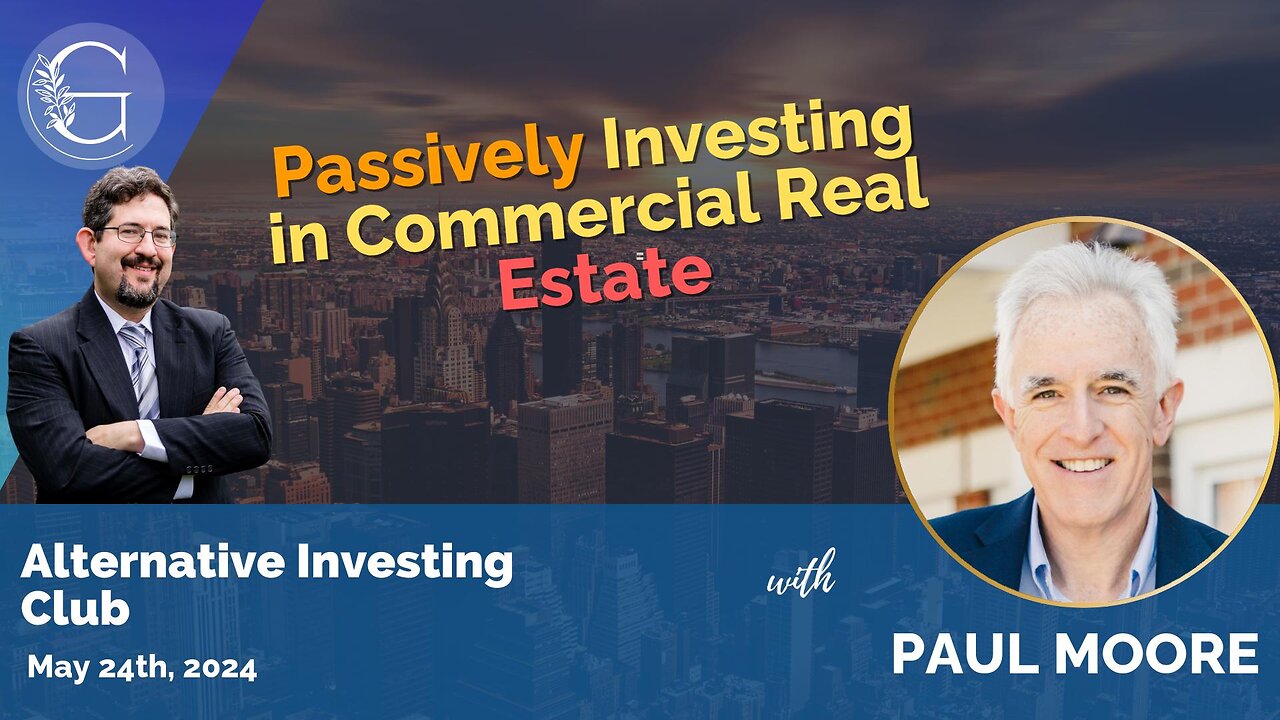
Passively Investing in Commercial Real Estate
Paul's Passive Investing in Commercial Real Estate
Paul discussed his experiences with passive investing in commercial real estate and the potential advantages of this approach. He underscored the difference between commercial and residential real estate, highlighting the latter's inefficiency for wealth creation and his own struggles as a landlord. Paul also shared his company's focus on various commercial real estate assets, while avoiding hotels, and discussed the benefits of passive investing, with examples of successful investors like Warren Buffett and John D. Rockefeller. Finally, he emphasized the importance of selecting the right deals and operators to ensure success in this investment strategy.
Cost-Cutting Measures Boost Commercial Real Estate Value
Paul discussed the potential for cost-cutting measures to add significant value in commercial real estate. He used examples to demonstrate how small adjustments, such as filling vacant apartments or reducing water bills, can lead to substantial returns. Paul emphasized that commercial real estate offers a unique opportunity to build value, and even minor improvements can result in large returns. He used Michelangelo's analogy of sculpting to illustrate a point about business strategy, emphasizing the importance of identifying the inherent value in raw material or potential and working to reveal it.
Intrinsic Value in Commercial Real Estate Investing
Paul emphasized the importance of intrinsic value in commercial real estate investing, encouraging investors to focus on deals or operators that can identify and extract this value. He stressed the need for deep focus and due diligence when investing passively, advocating for diversification across different asset types, properties, operators, geographies, and strategies. Daniel and Glenn asked for clarification on the roles of passive investors and operators in value-add examples, to which Paul responded that as a passive investor, he would conduct extensive due diligence upfront and maintain ongoing monitoring and accountability. He provided examples from his books, "The Perfect Investment" and "Self Storage", to illustrate intrinsic value extraction.
Commercial Real Estate Investment Examples
Paul highlighted three examples of commercial real estate investments. The first was a Las Vegas property that had been neglected for decades and was full of homeless tenants. The second was a self-storage facility in Grand Junction, Colorado, which was acquired from a neurotic seller with high delinquency rates but was significantly improved by the new operator. The third example was a self-storage facility in Beeville, Texas, which was acquired for $2.4 million and sold a year later for $4.6 million after significant improvements. Paul emphasized the potential for increasing income and value through proper management and marketing of these properties.
Exploring Sponsors and Commercial Real Estate Deals
Paul and Daniel discussed the potential benefits of seeking sponsors with both institutional and individual investors. Paul highlighted that institutional investors have more due diligence resources and a good track record, but noted that these deals are often difficult for regular individuals to access. Daniel agreed, suggesting that finding a group to pool resources for such deals could be a good strategy. In addition, Paul recommended Fred Hubler as a source for finding commercial real estate deals and getting investors into them. Daniel mentioned that Hubler might be connected to the 5.0.6 Club, which he was looking into.
Commercial Real Estate Assets and Trends
Paul discussed several commercial real estate asset types, with a focus on self-storage and mobile home parks. He explained that the self-storage industry, which consists of about 55,000 facilities in the US, is a lucrative and stable business, with potential for growth through value-added services. He also highlighted the increasing demand and limited supply in the mobile home park sector, noting the potential for affordable housing solutions. Paul pointed out the low capital expense budgets in mobile home parks as an advantage, and shared an example of a successful acquisition in Kentucky.
Exploring Investment Opportunities in Asset Types
Paul discussed potential investment opportunities in various asset types, including multifamily, self-storage, and RV parks. He highlighted the significant increase in demand for RV parks during the pandemic, and the potential for growth in this sector. Paul also shared insights on tax-abated properties and the benefits of investing in different parts of the capital stack. He emphasized the importance of considering the buyer's perspective, referencing a case where a friend acquired a property for $7.1 million and later sold it for $15 million, less than a year later.
Exploring Value-Add Investment Opportunities
Paul discussed various investment opportunities with a focus on value addition and tax-abated deals. He emphasized the potential of light industrial properties, which are often owned by small operators and have the potential for significant improvements. Paul shared success stories of properties that were acquired, refurbished, and later sold at substantial profits, with examples from the Oregon area. He also introduced the concept of open-air shopping centers, highlighting the current thriving market of off-price retailers and the opportunity to create arbitrage value by selling off out parcels.
Preferred Equity, Risks, and Sectors Impact
Paul discussed the potential of preferred equity as an investment option, citing Warren Buffett's purchase of preferred stock in Goldman Sachs during the 2008 financial crisis. He explained the different types of preferred equity and gave an example of a preferred equity investment. He also emphasized the importance of understanding the risks and considering factors such as liquidity and control. Additionally, Paul and Daniel shared their concern for human trafficking and discussed their support for respective organizations, Aim and Remember New Hampshire. Lastly, questions were raised by Glenn and Coldorf about the post-Covid and post-low-interest-rate impact on sectors like RV parks, mobile home parks, and theme parks, with Paul offering his perspective on these queries.
Paul's Investment Failures and Lessons
Daniel invited Paul to share his stories of failures and lessons learned as an investor. Paul shared several experiences, including his first significant losses in multifamily properties and a stolen bulldozer, advising others not to make similar mistakes, particularly concerning mobile homes. Daniel and William emphasized the importance of learning from mistakes and expressed gratitude towards Paul for his insights. The conversation ended with Paul encouraging everyone to check out a certain resource, 'wellings.capital', and wishing everyone a good weekend.
-
 LIVE
LIVE
Jerry After Dark
13 hours agoHole In One Challenge | Presented by TGL
5,688 watching -
 3:56:39
3:56:39
Alex Zedra
5 hours agoLIVE! New Game | The Escape: Together
40.4K6 -
 LIVE
LIVE
FreshandFit
6 hours agoJoe Budden Arrested For Being A Perv! Tesla Cybertruck Explosion
5,887 watching -
 2:08:45
2:08:45
Kim Iversen
9 hours agoNew Year, New PSYOP?: The Fort Bragg Connection In The New Years Terror Attacks
61.9K112 -
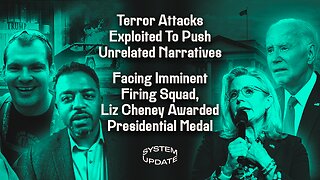 1:41:18
1:41:18
Glenn Greenwald
8 hours agoTerror Attacks Exploited To Push Unrelated Narratives; Facing Imminent Firing Squad, Liz Cheney Awarded Presidential Medal | SYSTEM UPDATE #381
90.2K165 -
 1:00:32
1:00:32
Man in America
10 hours ago🔴 LIVE: Terror Attacks or False Flags? IT DOESN'T ADD UP!!!
47.6K15 -
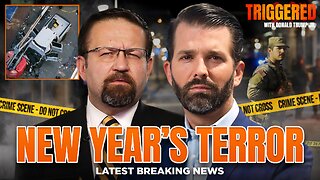 1:02:38
1:02:38
Donald Trump Jr.
12 hours agoNew Year’s Terror, Latest Breaking News with Sebastian Gorka | TRIGGERED Ep.204
186K373 -
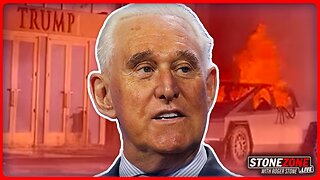 59:59
59:59
The StoneZONE with Roger Stone
7 hours agoAfter Years of Targeting Trump, FBI and DOJ are Unprepared to Stop Terror Attacks | The StoneZONE
55.2K15 -
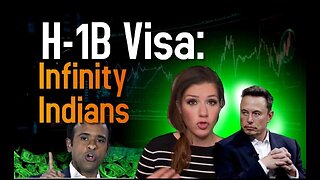 1:26:42
1:26:42
Leonardaisfunny
5 hours ago $3.85 earnedH-1b Visas: Infinity Indians
35.1K18 -
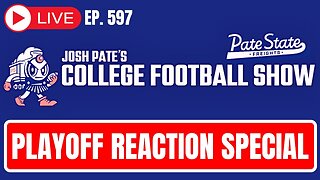 1:08:33
1:08:33
Josh Pate's College Football Show
10 hours ago $2.41 earnedPlayoff Reaction Special: Ohio State Owns Oregon | Texas Survives | UGA vs Notre Dame Takeaways
33.9K6